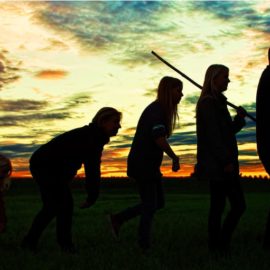

This article is an excerpt from the Shortform book guide to "Humankind" by Rutger Bregman. Shortform has the world's best summaries and analyses of books you should be reading.
Like this article? Sign up for a free trial here .
What is Thomas Hobbes known for? How did Hobbes’ views influence modern-day moral philosophy?
Thomas Hobbes was an English philosopher who lived during the 17th century and who exerted a significant influence on modern philosophy. According to Thomas Hobbes, human nature is essentially cruel and selfish, and the only way to subdue humanity’s evil impulses is through power.
Here’s how Hobbes’ philosophy influenced modern-day societal order.
Thomas Hobbes: Civilization Curbs Humans’ Evil Instincts
According to Thomas Hobbes, human nature is inherently selfish and driven by a desire for power. Before civilization, Hobbes said, this selfishness led to anarchy: Each person sought power for themselves, creating an all-out war. In his most famous book, Leviathan (1651), Hobbes argued that the only way to combat this anarchy was to give up our freedom to a powerful ruler, which he named the “Leviathan.” In his view, the Leviathan would keep order by ensuring that humans’ base instincts didn’t rise to the surface.
(Shortform note: Hobbes’s view of human nature—and his fear of anarchy and war—stem from his life experiences. He wrote Leviathan during a period of civil war in England. On one side of the war were the Royalists, who supported the reigning but unpopular King Charles I and his claim to absolute, God-given power. On the other side were the Parliamentarians, who wanted the elected Parliament to control the government. In 1649, two years before Hobbes published Leviathan, the Parliamentarians executed King Charles I. Hobbes worried that the deposition of Charles would lead to all-out anarchy, hence his assertion that only a powerful sovereign can prevent war.)
According to Bregman, Hobbes’s thinking is foundational to Western society. As we’ll discuss later in the guide, the notion that humans are fundamentally selfish creatures who require a strong hand still informs theories of criminal justice, management, and government.
Hobbes’s Influence on Western Society: Social Contract Theory
As Bregman notes, Hobbes’s philosophy continues to influence our society today. One of the ways it does so is through Hobbes’s introduction of Social Contract Theory, which forms the philosophical basis for many modern governments. Here’s a brief summary of what Social Contract Theory is, how it’s evolved, and why it’s been so important to Western society.
Social Contract Theory states that in a society, citizens must form an agreement, whether real or imagined, that lays out the responsibilities of each individual to the community. As Bregman suggests, Hobbes viewed the social contract as follows: Citizens agree to give up their freedom to an absolute ruler (the Leviathan) in exchange for security and peace.
While Hobbes’s version of the social contract was relatively conservative, later philosophers such as John Locke would build on his work. Locke’s revision of Hobbes’s social contract set the foundation for Western democracy. Whereas Hobbes believed that a government’s only responsibility to its citizens was to maintain security and peace, Locke believed that when citizens created a society through a social contract, the government had an obligation not only to keep them safe but also to protect their rights. Among these rights was the power to choose a legislature.
If this protection of rights didn’t occur, Locke said, then the government broke the social contract and the citizens had the right to rebel. The idea—radical at the time—that the citizens should be in charge of government profoundly influenced the development of early democracies, including that of the United States.

———End of Preview———
Like what you just read? Read the rest of the world's best book summary and analysis of Rutger Bregman's "Humankind" at Shortform .
Here's what you'll find in our full Humankind summary :
- Why humans are fundamentally good, not evil
- How the Stanford Prison Experiment was misleading
- How recent studies have debunked "Killer Ape Theory"






